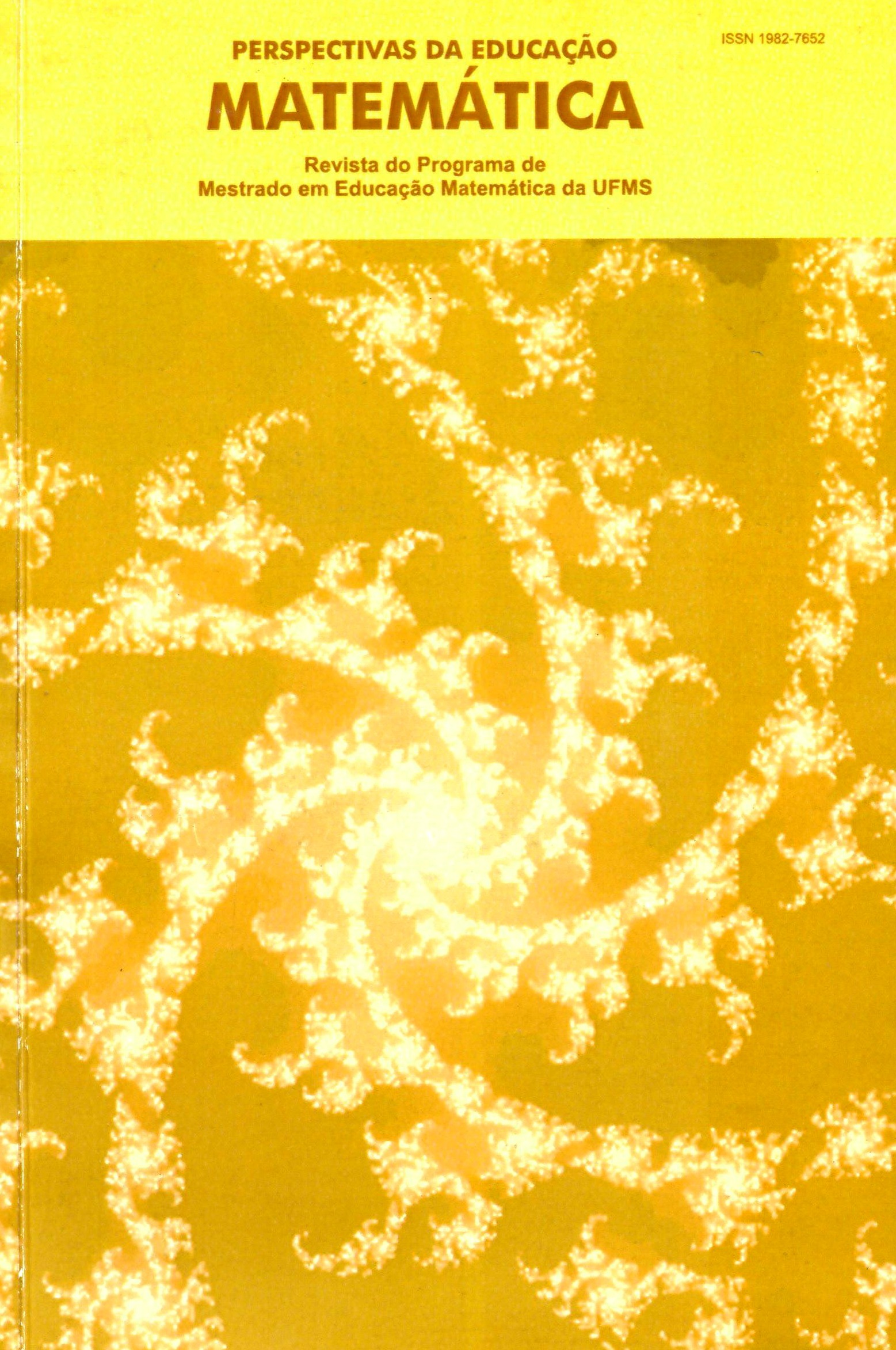REFLEXÕES SOBRE MODELAGEM MATEMÁTICA CRÍTICA E O FAZER MATEMÁTICO DA ESCOLA
Palavras-chave:
Modelagem Matemática, Modelagem Sócio-Crítica, Teoria Antropológico do Didático (TAD)Resumo
Considerando a necessária tomada de consciência da matematização das ações sociais desejada pela educação matemática crítica e sobre as dificuldades de professores e estudantes em modelagem matemática de situações reais apontadas por diferentes autores, refletimos sobre o fazer de modelagem matemática nas práticas sociais e o fazer matemático formal de modo a contextualizar esses afazeres no ambiente de ação escolar sob a ótica da teoria antropológica do didático. A partir de objetos matemáticos do ensino básico, exploramos exemplos escolares e a análises de situações de ações sociais buscando evidenciar que é possível construir sequências didáticas, ou transposições didáticas, que podem contornar dificuldades na construção de modelos de situações reais e revelem o fazer de modelagem crítica como um fazer matemático da escola.
Referências
BARBOSA, J.C. Mathematical Modelling in classroom: a socio-critical and discursive perspective, ZDM, v.38, n.3, p.293-301, June. 2006.
BERLINSKI, David. O Advento do Algoritmo: a idéia que governa o mundo. São Paulo: Globo, 2002.
BLUM, W.; GALBRAITH, P.L.; HENN, H-W; NISS, M. (Eds). Modelling and applications in mathematics education: The 14th ICMI study, ZDM, v.40, n.2, p.337-340, May. 2008.
BUSSE, A. Individual ways of dealing with the context of realistic tasks: first steps towards a psychology, ZDM, Hamburg, v.37, n.5, 354-360, Oct. 2005.
BUSSE, A.; KAISER, G. Context in application and modelling: an empirical approach. In: Q.-X,Ye; BLUM, W.; HOUSTON, S. K.; JIANG, Q.-Y. Mathematical modelling in education and culture: ICTMA10. Chichester: Horwood Publishing, 2003. p. 3-15.
CHEVALLARD, Y. La transposición didáctica: del saber sabio al saber enseñado. Buenos Aires: Aique, 1996.
CHEVALLARD, Y. L’Analyse des pratiques enseignantes en thorie anthropologique du didactique. Recherches en Didactique des Mathematiques, Grenoble, v.19, n.2, p. 221-266,1999.
CHEVALLARD, Y.; BOSCH. M.; GASCÓN, J. Estudar matemáticas: o elo perdido entre o ensino e aprendizagem. Porto Alegre: Artmed, 2001.
CHRISTENSEN, O. R.; SKOVSMOSE, O.; YASUKAWA, K. The Mathematical State of the World: explorations into the characteristics of mathematical descriptions. Alexandria Revista de Educação em Ciência e Tecnologia, v.1, n.1, p. 77-90, Mar. 2008.
D’AMORE, B. Elementos de didática de matemática. São Paulo: Livraria de Física, 2007.
DAVIS, Philip J.; HERSH, Ruben. O sonho de Descartes. Rio de Janeiro: F. Alves, 1998.
GARCÍA, Javier; GASCÓN, Josep; RUIZ HIGUERAS, Luisa; BOSCH, Marianna. Mathematical modelling as a tool for the connection of school mathematics, ZDM, v. 38, n. 3, p.226-246, June. 2006.
GRANDSARD, Francine. Mathematical modelling and the efficiency of our mathematics. 2005. Disponível em: http://math.ecnu.edu.cn/earcome3/sym4/Earcome3_Francine%20Grandsard_sym4.doc. Acesso em: 02.06.2009.
IBGE. Metodologia das estimativas das populações residentes nos municípios brasileiros para 1 de julho de 2008: uma abordagem demográfica para estimar o padrão histórico e os níveis de subenumeração de pessoas nos censos demográficos e contagens da população. Rio de Janeiro: IBGE, 2008. 30p.
IVERSEN, Steffen M.; LARSON, Christine J. Simple Thinking using Complex Math vs. Complex Thinking using Simple Math: a study using Model Eliciting Activities to compare students’ abilities in standardized tests to their modelling abilities, ZDM, v. 38, n.3, 281-292, June. 2006.
JANKVIST, U. T. On empirical research in the field of using history in mathematics education. Revista Latinoamericana de Investigación en Matemática Educativa, v. 12, n. 1, p. 67-101, Feb. 2009.
JULIE, C. Mathematical Literacy: Myths, further inclusions and exclusions. Pythagoras, v. 64, p.62-69, dez. 2006.
KAISER, G.; SRIRAMAN, B. A global survey of international perspectives on modelling in mathematics education, ZDM, v.38, n.3, p.302-310, June. 2006.
LIMA, E.L. Que são grandezas proporcionais? Revista do Professor de Matemática, Rio de Janeiro, n. 9, p. 21-29, jul/dez. 1986.
PONTE, João Pedro da. Literacia matemática. In: CONGRESSO LITERACIA E CIDADANIA, CONVERGÊNCIAS E INTERFACE, 2002, Évora, Actas eletrónicas... Évora: Centro de Investigação em Educação Paulo Freire, 2002, 1 cd-rom.
REVUZ, A. The position of geometry in mathematical education. Educational Studies in Mathematics, v. 4, n. 1, p. 48-52, June. 1971.
RUSSEL, B. The Study of Mathematics. In: SHAPLEY, H.; RAPPORT, S.; WRIGHT, H. The New Treasury of Science. New York: Harper & Row Publishers, 1965. p. 48-50.
SKOVSMOSE, O. Toward a Critical Philosophy of Mathematics Education. Dordrecht: Kluwer Academic Publishers, 1994.
SKOVSMOSE, O. Critical Mathematics Education. In: CLAUDI, A.; ALVAREZ, J. M.; NISS, M.; PÉREZ, A.; RICO, L.; SFARD, A. (Eds). Proccedings of the 8th International Congress on Mathematics Education, Seville: [s.n.], 1998, p. 413-425.
SKOVSMOSE, O. Cenários para Investigação, Bolema, Rio Claro, SP, v. 13, n.14, p. 66-91, 2000.
SKOVSMOSE, O. Mathematics as part of technology. Educational Studies in Mathematics, v.19, n.1, p. 23-41, Feb. 1988.
SKOVSMOSE, O. Mathematics in action: a challenge for social theorizing?. Philosophy of Mathematics Education Journal, n.18, Oct. 2004.
SKOVSMOSE, O.; NIELSEN, L.; POWELL, A. Critical Mathematics Education. Research Report R-95-2023, Aalborg University: Department of Mathematics and Computer Science, 1995.
SKOVSMOSE, O., YASUKAWA, K. Formatting power of mathematics: a case study and questions for mathematics education. In: MATHEMATICS EDUCATION AND SOCIETY – INTERNATIONAL CONFERENCE., 2nd, 2000, Montechoro, Algarve, Portugal. Proceedings … Montechoro, Algarve, Portugal, 2000.
SIERRA, G. M. Los procesos de convención matemática como generadores de conocimento. Relime, v.8, n.2, p.195-218, jul. 2005.
TRAJANO, Antonio. Arithmetica progressiva: Curso completo theorico e pratico de arithemetica superior. 62.ed. Rio de Janeiro: [s.n.], 1927.
VALERO, P. SKOVSMOSE, O. (Eds.). Proceedings of the 3rd International Mathematics Education and Society Conference. Copenhagen: Centre for Research in Learning Mathematics, 2002, p. 1-13.
YASUKAWA, K.; JOHNSTON, B.; YATES, W. Numeracy as a critical constructivist awareness of maths: Case studies from engineering and adult basic education, Regional Collaboration in Mathematics Education: An ICMI regional conference, Monash University, Melbourne, Bowater Reding,. 1995. p. 815 – 825.


